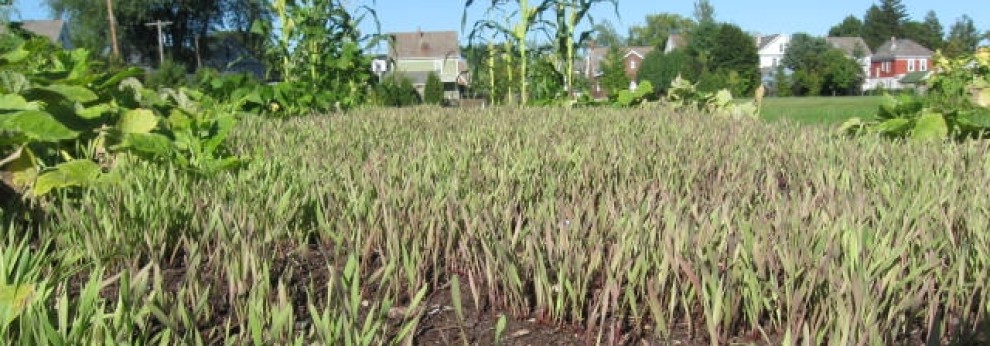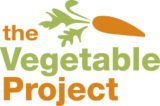The Vegetable Project builds teaching and learning around doing and touching and tasting and experiencing – all year long. In July and early August, it’s mainly in partnership with Albany’s Summer Youth Employment Program, an initiative that provides 14-to-18-year-olds with 100 hours of paid employment to the extent that the program folks can find outfits like ours to host the teens.
 Here are some of our ideas about teaching and learning and how partnering with a summer jobs program offers opportunities to put these ideas into action:
Here are some of our ideas about teaching and learning and how partnering with a summer jobs program offers opportunities to put these ideas into action:
Experiences – and watching screens or sitting passively in classrooms are NOT the best examples we can come up with – in their infinite variety, build capacity and appetite for learning, though little about the process will be easily measured. Oh, and experiences also help instill in young people a sense of agency and resilience and composure. Indeed, we would suggest that the more and broader range of experiences a kid has, ideally with some support from Sherpas in figuring out what lessons are embedded in various experiences, the better the prospects are for our school efforts to succeed in teaching readin’, writin’ and ‘rithmatic.
 So, so what kind of experiences will the VegProj offer to 11 high school students this summer? The range, including many that might seem ridiculously mundane, is extensive. And the breadth is the point, not some conviction that this one or that one holds the key to successful passage from childhood to adulthood. Nevertheless, here are some possible examples:
So, so what kind of experiences will the VegProj offer to 11 high school students this summer? The range, including many that might seem ridiculously mundane, is extensive. And the breadth is the point, not some conviction that this one or that one holds the key to successful passage from childhood to adulthood. Nevertheless, here are some possible examples:
- Being handed responsibility for making decisions about garden care and when the crew can call it a day.
- Discovering what a difference bodily positioning makes when driving a screw into lumber with a battery-operated tool or cutting lumber with a hand-held saw.
- Working outdoors when the weather is not so comfortable.
- Navigating the public bus system to get to work across town.
- Navigating relationships with peers who might be avoided in the school hallways.
- Thinking about how many hours of unskilled labor might be required to pay monthly rent on a residential place.
- Getting dirt underneath the fingernails.
- Tasting vegetables the moment they are plucked from a vine.
- Watching the daily development of living organisms.
- Making decisions about presentation of dishes prepared with freshly picked garden greens, despite having zero experience in the kitchen at home.
- Observing the relentless persistence of plant life in the form of weeds.
- Listening to the boss rant day after day about what he thinks are the most important lessons to learn in life.
 We don’t expect kids to find every moment of employment at the Vegetable Project Farm to be a positive experience. We would be very skittish about guessing which experiences will leave what impression. We are pretty sure, however, that real doing and touching and tasting can produce extraordinarily powerful experiences. We would be thrilled to see a sign that the formal education policy makers buy any of this. And we appreciate the opportunity that Albany’s Summer Youth Employment Program offers to test drive these ideas.
We don’t expect kids to find every moment of employment at the Vegetable Project Farm to be a positive experience. We would be very skittish about guessing which experiences will leave what impression. We are pretty sure, however, that real doing and touching and tasting can produce extraordinarily powerful experiences. We would be thrilled to see a sign that the formal education policy makers buy any of this. And we appreciate the opportunity that Albany’s Summer Youth Employment Program offers to test drive these ideas.
–Bill Stoneman




